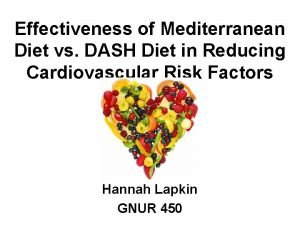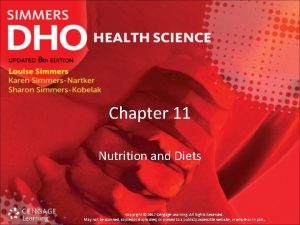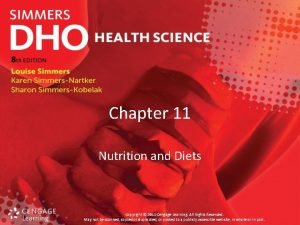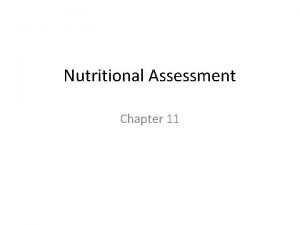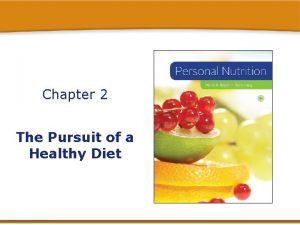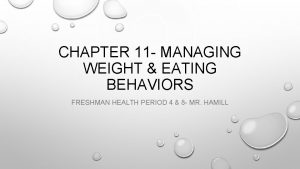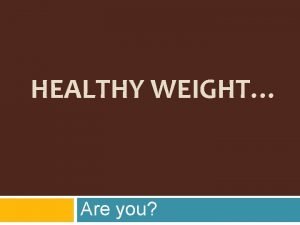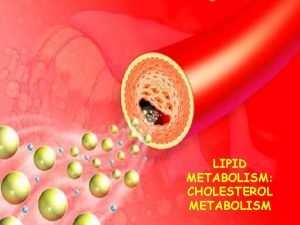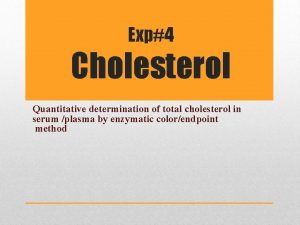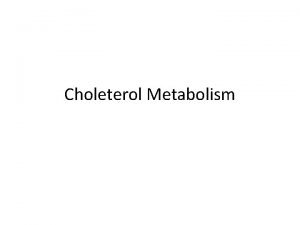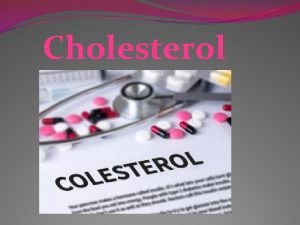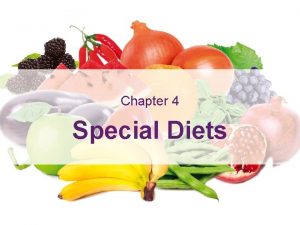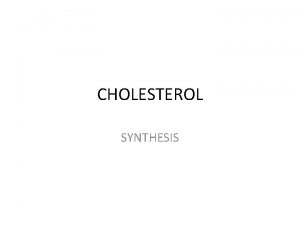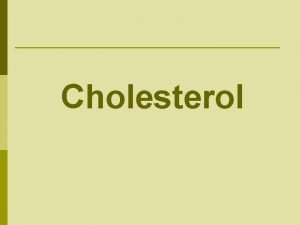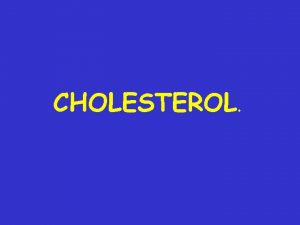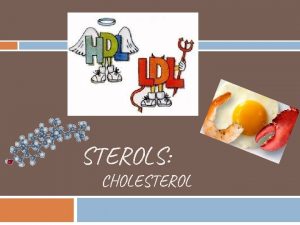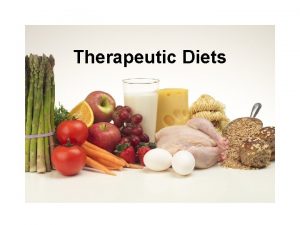Chapter 06 Special Diets LowFatLow Cholesterol Diet LowFatLowCholesterol










- Slides: 10

Chapter 06: Special Diets – Low-Fat/Low Cholesterol Diet

Low-Fat/Low-Cholesterol Diets • Fat is an essential part of our diet (can you remember why? ). • It is recommended that the average person reduce their fat intake to remain healthy. • There are healthy and unhealthy sources of fat, so we need to be aware of the types of fat we are eating, as well as the amount we consume.

High-Cholesterol Diet: Associated Health Problems • Obesity • Cardiovascular diseases, e. g. coronary heart disease • Stroke • High blood pressure • It can also aggravate diseases like diabetes and cancer

Coronary Heart Disease This occurs when the arteries of the heart become blocked with a substance called cholesterol. • Cholesterol is a fatty substance that clings to the walls of the arteries. • This causes the arteries to become narrower, which puts more pressure on the heart as it has to pump the blood through smaller vessels. • This can result in high blood pressure, heart disease or strokes.

Cholesterol Build-up in an Artery

Causes of Heart Disease • • • A history of heart disease in your family (hereditary) Being overweight or having a diet high in saturated fat Lack of exercise Smoking Stress Too much alcohol

How to Reduce the Risk of Heart Disease • • • Follow a low-fat/low-cholesterol diet Avoid becoming overweight Do not smoke Avoid stress Take lots of exercise Do not drink alcohol excessively

Guidelines for Reducing Fat Intake Avoid high-fat sauces such as cream or cheese sauces Avoid pastries and cakes Choose low-fat dairy products Choose low-fat unsaturated spreads Grill, steam, bake or microwave instead of frying Eat lean meat, fish or poultry without the skin to supply protein • Trim excess fat from meat and cut down on red meat • Avoid fatty snack foods • Increase the intake of fruit and vegetables in the diet • • •

Simple Dietary Changes to Reduce Fat Intake High-cholesterol foods Butter Hard margarine Suet Lard Dripping Fatty meats (bacon, sausage, pâté) Cheese Cream Eggs, particularly yolks Low-cholesterol alternatives Unsaturated spreads Oils White and oily fish Chicken, turkey Pulse vegetables Cottage cheese Low-fat yoghurt Fruit and vegetables High-fibre cereals

Quick Revision 1. What are the risks of a high-cholesterol diet? 2. Can you list five risk factors associated with coronary heart disease? 3. Can you suggest three ways coronary heart disease can be prevented?
 Dash diet or mediterranean diet
Dash diet or mediterranean diet Chapter 11 nutrition and diets
Chapter 11 nutrition and diets Test chapter 11 nutrition and diets
Test chapter 11 nutrition and diets Chapter 11 nutrition and diet
Chapter 11 nutrition and diet Optimal nutritional status
Optimal nutritional status Diets based on only one basic food element
Diets based on only one basic food element Most fad diets do follow the mypyramid guidelines.
Most fad diets do follow the mypyramid guidelines. Fad diets def
Fad diets def Cholesterol precursor
Cholesterol precursor How to determine total cholesterol
How to determine total cholesterol Choleterol
Choleterol
